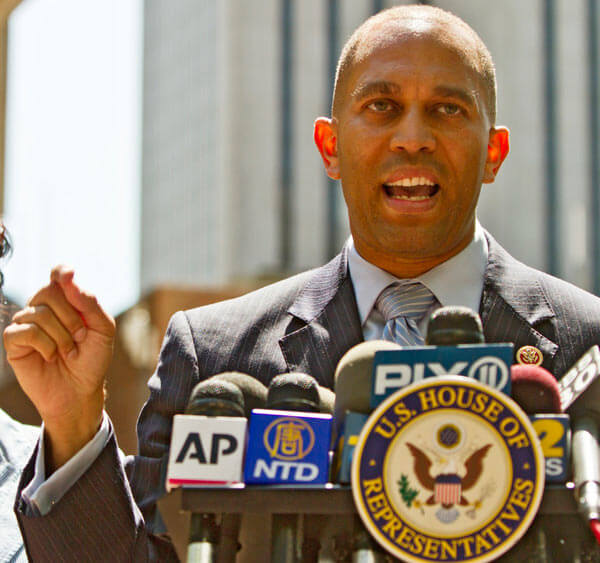Brooklyn Democratic Congresswoman Yvette D. Clarke on Thursday strongly condemned the Trump administration’s termination of the Haitian Family Reunification Parole Program.
Clarke told Caribbean Life that the Haitian Family Reunification Parole Program, modeled after the Haitian Emergency Life Protection Act that she introduced in the US House of Representatives in 2010, allowed family members of US citizens and lawful permanent residents, who were living in Haiti and had already been approved for a family-based immigrant visa, to come to the US during their processing.
“Our immigrant community has been attacked yet again by this xenophobic administration – this time with the termination of the US Citizenship and Immigration Services’ (USCIS) family-reunification parole program for Haitian nationals,” said Clarke, the daughter of Jamaican immigrants.
“I am calling for a retraction of the administration’s cowardly decision to end the Haitian Family Reunification Parole Program because this choice does not reflect the American values that bind us,” added the representative for the largely 9th Congressional District in Brooklyn.
In 2010, Clarke said she “proudly introduced the Haitian Emergency Life Protection Act that became the model for the Haitian Family Reunification Parole Program that was just terminated by this administration – a program that has been crucial to ensuring Haitian families remain together in safety.
“My parents immigrated to America, which has given me a deep understanding into the work and sacrifice required to leave one’s country of origin and move to the United States in search of better opportunities,” she said.
“This administration’s revocation of the Haitian Family Reunification Parole Program reverses considerable progress in addressing the immigration backlog facing Haitian-American families while lessening US support of long-term Haitian development, and significantly delays immigrants’ pursuit of the American Dream and further extends family separation.”
Last Friday, USCIS said it intended to terminate two categorical parole programs, consistent with what it said is Executive Order (E.O.) 13767, Border Security and Immigration Enforcement Improvements, “and to better ensure that parole is used only on a case-by-case basis, consistent with the law.”
USCIS said parole is a process that allows foreign nationals to temporarily enter or remain in the United States, including those who are otherwise inadmissible.
The programs to be terminated are the Haitian Family Reunification Parole program and the Filipino World War II Veterans Parole program, USCIS said.
Under both of these categorical parole programs, it said individuals with approved family-based immigrant petitions have been authorized to enter and work in the United States while waiting for their green card to become available.
USCIS said the decision to end these parole programs “ends the expedited processing that was made available to these populations in a categorical fashion.
“It follows an extensive review to better ensure that parole authority under the Immigration and Nationality Act is exercised on a case-by-case basis, when there is a significant public benefit or urgent humanitarian reason,” it said. “Categorical parole refers to programs designed to consider parole for entire groups of individuals based on pre-set criteria.
“Under these categorical parole programs, individuals have been able to skip the line and bypass the proper channels established by Congress,” USCIS added.
USCIS Acting Director Ken Cuccinelli said, “with the termination of these programs, these individuals will no longer be permitted to wait in the United States for their family-based green card to become available, consistent with the rules that apply to the rest of the world.
“Parole is to be used on a case-by-case basis for urgent humanitarian reasons or significant public benefit,” he stressed. “USCIS is committed to exercising this limited authority in a manner that preserves the integrity of our immigration system and does not encourage aliens to unlawfully enter the United States.”


























